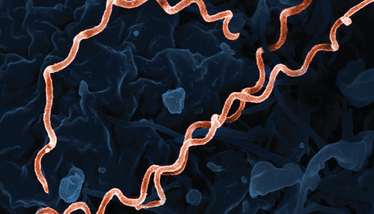Searching for a Syphilis Vaccine
How whole genome sequencing is being used to understand the bacterium that causes syphilis – and what it means for vaccine development
Stephanie Vine | | News

Credit: NIAID
In the hopes of boosting the search for a vaccine, researchers across four continents have been studying the genetic diversity of T. pallidum, the bacterium that causes syphilis. Currently, there are no approved syphilis vaccines – with development being stifled by the complex nature of the bacterium and its ability to evade the immune system.
Syphilis can cause neurological complications, adverse pregnancy outcomes, and increase a person’s susceptibility to HIV. Moreover, previous infection also does not confer long-term immunity. In the US and other countries, cases are rising. According to the Centers for Disease Control (CDC), there were 207,255 cases in the US in 2022 – the greatest number since the 1950s. Babies made up 3,755 of those cases – some of whom were stillborn.
The researchers collected and analyzed clinical and genomic data from syphilis patients in diverse geographical regions, including China, Colombia, Malawi, and the US.
Whole-genome sequencing showed significant differences between the two main lineages of T. pallidum: SS14 and Nichols. The SS14 lineage was more prevalent worldwide, while Nichols strains exhibited greater genetic diversity. Phylogenomic analysis showed that Nichols strains clustered into more distinct subclades compared with SS14 strains, indicating a more complex genetic evolution. The findings are important because different strains may respond differently to vaccines.
One key focus was the identification of single nucleotide variants (SNVs) in outer membrane proteins, which are crucial for vaccine development. These proteins are targets for the immune response, and their variability can influence the effectiveness of a vaccine. The research mapped SNVs to 3D protein models and found population-specific substitutions that could impact vaccine design and syphilis pathogenesis.
Overall, the research supports the idea that vaccine development must consider both global strain diversity and regional variations to ensure broad efficacy.

Making great scientific magazines isn’t just about delivering knowledge and high quality content; it’s also about packaging these in the right words to ensure that someone is truly inspired by a topic. My passion is ensuring that our authors’ expertise is presented as a seamless and enjoyable reading experience, whether in print, in digital or on social media. I’ve spent fourteen years writing and editing features for scientific and manufacturing publications, and in making this content engaging and accessible without sacrificing its scientific integrity. There is nothing better than a magazine with great content that feels great to read.



















